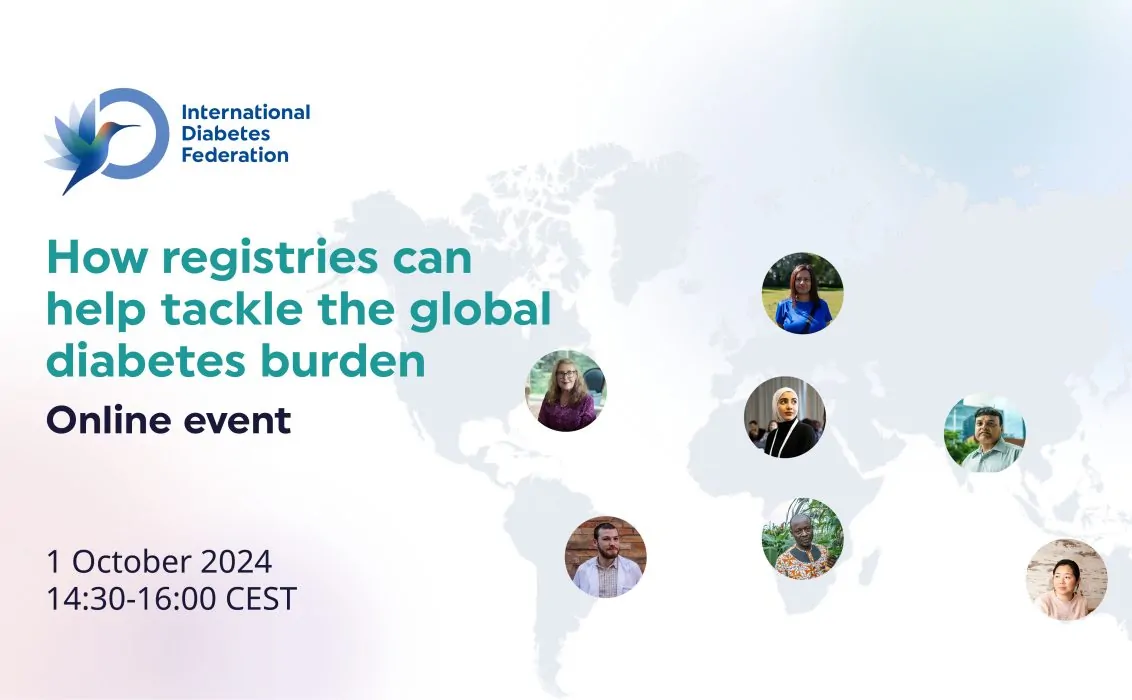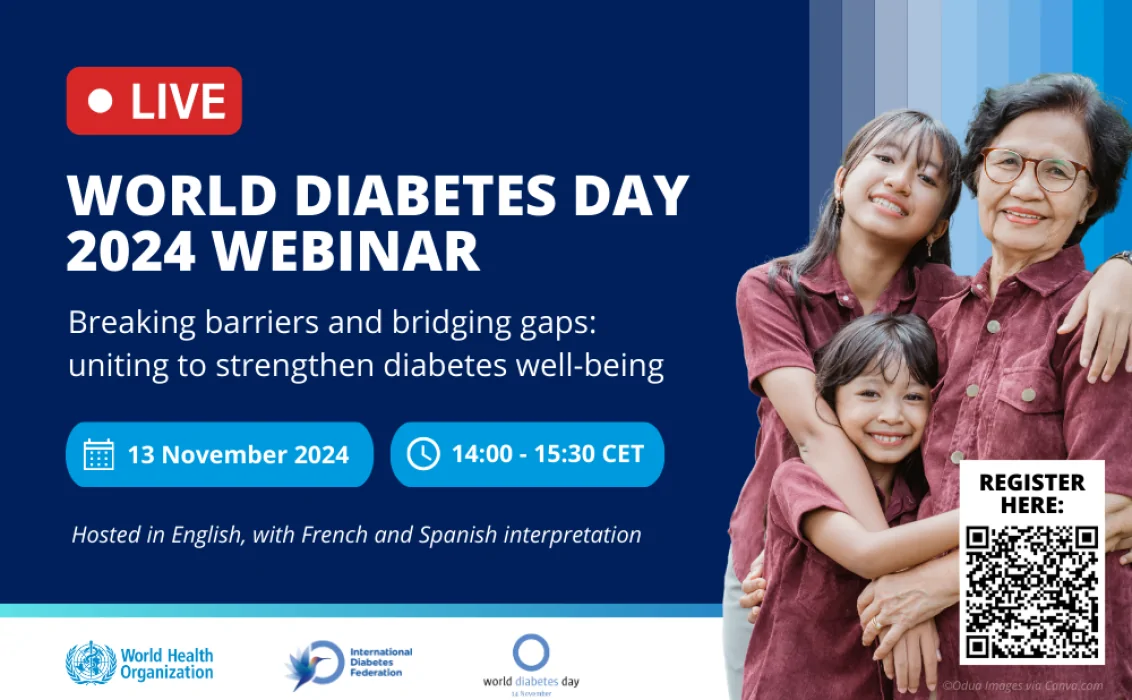Global epidemiological data on diabetes and diabetes-related complications are a central part of evaluating the impact of diabetes and health outcomes for people living with the condition. However, there are many gaps in these data, particularly in low- and middle-income countries, where the diabetes burden is increasing most.
Diabetes registries are more than just data repositories— they are powerful tools that can improve care and health outcomes for people with diabetes. By collecting and sharing real-world patient data, these collaborative platforms can identify treatment patterns and quality of care and prevent or delay diabetes-related complications, ultimately reducing healthcare costs and ensuring better patient outcomes.
This online event, organised by the International Diabetes Federation (IDF), presented national diabetes registries and data collection methods. Healthcare professionals will learn the benefits of including data on diabetes-related complications, management plans and quality of care in their clinical practice. Furthermore, by leveraging data from these registries, diabetes advocates can build advocacy campaigns to inform policies for better quality of care, standardised early diagnosis, and prevention of diabetes and diabetes-related complications.
What you will learn:
- People with diabetes: Learn how registries can lead to better care, more targeted treatments and improved quality of life.
- Healthcare professionals: Gain access to invaluable real-world data to inform your clinical decisions and improve patient outcomes.
- Advocates and policymakers: Discover how registry data can shape evidence-based policies, advocate for better care and bridge gaps in early diagnosis.
Who are the speakers:
- Prof Peter Schwarz, IDF President (Germany)
- Dr Hermelinda Pedrosa, IDF Vice-President and Research Coordinator at the Diabetes Unit of the Federal District Health Department of Brazil (Brazil)
- Prof Farshad Farzadfar, Scientist, NCD department, WHO, HQ
- Prof Kamlesh Khunti, Professor of Primary Care Diabetes and Vascular Medicine at the University of Leicester and iCaReMe Steering Committee member (UK)
- Prof Abdul Basit, Baqai Medical University (BMU), Diabetic Association of Pakistan (DAP), Chair, IDF Atlas committee member (Pakistan)
- Diana Novelo Alzina, YLD Mentor and Treasurer of the Diabetes Association of Southeastern Mexico (Mexico)
Watch the recording below:



